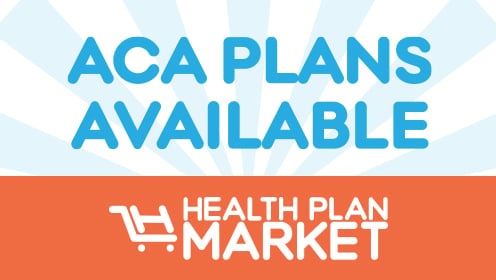Employer-sponsored health insurance plans are often more affordable than seeking coverage on your own. But if you need to, you can still decline coverage. Although some restrictions apply, you aren’t required to accept your company’s health insurance coverage.
It may make more sense to decline employer health insurance and opt for a plan through the Healthcare.gov marketplace, directly from a private health insurance company, or through another source, such as Medicare or Medicaid. Some people also get coverage under their spouse’s plan.
Read on to learn more about the advantages and disadvantages of employer-sponsored health insurance.
Should you get employer-sponsored health insurance?
Employer-sponsored health insurance is often more affordable than an individual plan, but not always — and you may find an ACA plan with a better provider network.
Brian Colburn, senior vice president of corporate development & strategy at Waltham, Massachusetts-headquartered Alegeus, says that, despite the advantages of employer group insurance plans, many still choose to purchase individual health insurance.
“Often, this happens when the employee’s needs don’t match what the employer-sponsored coverage offers. If you have unique healthcare needs, desire doctors and specialists out of network or want a more bare-bones plan, the individual marketplace can be a good alternative,” says Colburn.
Neat explains that shopping for coverage at Healthcare.gov may be best if you qualify for an income-based subsidy. The ACA marketplace provides subsidies and tax credits to help people pay for ACA plans. The subsidies can save members hundreds of dollars each month, but they aren’t available for plans outside of the ACA marketplace.
“If you are self-employed or you do not have affordable options at work, an individual ACA or private marketplace plan may be the only option in your area. The good news is that ACA plans have no penalties for pre-existing conditions, so if you are struggling with a health condition, this may be your best choice,” she says.
Can employees decline employer-sponsored health coverage?
You aren’t required to accept an employer health insurance plan. You can decline or waive this benefit.
“But you may have to sign a waiver that you will be obtaining another insurance plan or accepting someone else’s insurance coverage so that your employer has proof that you are insured for legal purposes,” Schrader says.
If you decline or waive your employer-sponsored coverage, you can enroll later during the employer’s open enrollment period unless you qualify for a special enrollment because of a qualifying event.
“Certain qualifying life events, such as you losing coverage not provided by your employer, getting married or having children may trigger a special open enrollment period during which you can sign up for group coverage at work, too,” says Kronk.
Also, after signing up for employer-sponsored health coverage and agreeing to deduct your premiums from your paychecks, “you can’t drop coverage during the year unless you experience a qualifying life event,” says Colburn.
When you shouldn’t opt for an employer’s health insurance plan
Here are some scenarios when you might want to opt out of group insurance at work and buy health insurance on your own.
- Your employer offers health insurance coverage but doesn’t contribute enough to the premiums. The amount employers subsidize can vary by employer. If your employer doesn’t help much to pay premiums, you might find a better deal by buying an individual health plan, especially if you qualify for subsidies in an ACA plan.
- A spouse can get a better health plan. Alex Kronk, owner of HealthPlanCritic.com in Raleigh, North Carolina, notes that many opt to turn down medical employer health coverage if a spouse has a lower-cost plan with better health benefits.
- Your employer offers coverage, but the plan doesn’t offer robust coverage. Under the ACA, employer-sponsored plans must cover at least 60% of medical expenses for a “standard population.” In that case, the employee pays 40% of their health care expenses through deductibles, coinsurance and copayments. Your plan will state whether it meets the percentage requirement.
- You’ve lost your job and are offered COBRA. COBRA law gives you the right to continue the plan you had through your work after leaving a job, but your employer doesn’t subsidize your premiums. If you lose your job after the regular open enrollment period has ended, you qualify for a special open enrollment of 60 days.
- Your employer’s family coverage is too expensive. If your family’s premiums total more than 9.5% of your income, you won’t qualify for tax credits to buy insurance through a health insurance marketplace. In this case, it’s smart to shop around for coverage to determine where you can land the best coverage for your family at an affordable price.
- Your providers don’t accept the employer’s health insurance plan. Doctors don’t take every type of health insurance plan. So, checking a health plan’s provider network before signing up is wise. If your providers aren’t considered in-network, you may have to pay all or more of the costs depending on the type of health plan.
How are group and individual medical coverage different?
For employer-sponsored coverage, employers decide on the health insurance company, network, copays and deductibles. This health coverage is only provided to those currently employed and their dependents and isn’t individualized.
However, people may find coverage for individuals and families through the ACA exchange or directly from insurance companies that better fit their needs. That way, they can choose the copays, out-of-pocket costs and benefits that make sense to them such as a health maintenance organization (HMO) or preferred provider organization (PPO)
Here is how an employer sponsored plan compares to other health coverage options:
| Plan | Pros | Cons |
|---|---|---|
| Employer-sponsored health insurance | Employer helps pay so it can be more affordable than other options You can usually add your spouse and dependents to the plan | Limited to your employer’s choices Coverage is limited to your employment, so if you lose your job, you can get COBRA, which is expensive, or you have to find another plan |
| ACA plan through the marketplace | ACA marketplace offers multiple options in most parts of the country Gives you more flexibility to find a health plan that may fit your needs If you qualify for subsidies, you may find a plan more affordable than an employer plan | Without subsidies, ACA plans can be pricey Most areas have multiple ACA plans of varying benefit design and costs Some parts of the country have limited options ACA plans often have limited provider networks |
| Individual plan outside the marketplace | More choices, but takes some digging to see which plans are offered in your area You’re not as limited as with other options, but it also requires you to work directly with the insurance companies | No subsidies, so these plans are usually more expensive than ACA plans or employer plans |
| Medicare | Multiple Medicare Advantage plans are offered by private insurance companies and Original Medicare Most have options with different benefit designs and costs | Must meet age or disability requirements to qualify for Medicare |
| Medicaid | Most affordable option Comprehensive coverage for little to no money Costs based on your income | Must meet the income requirements to qualify Members usually can’t choose between plans You may have trouble finding providers that accept Medicaid in your area |
Most of the time, you can turn down your employer’s group health insurance plan. However, you may have to sign a waiver or prove to your employer that you will get different insurance coverage. If you decide you want to enroll in your employer’s plan at a later time, you can do so during open enrollment period or if you qualify for a special enrollment period.
Find out more about employer-sponsored health insurance vs. individual plans.










